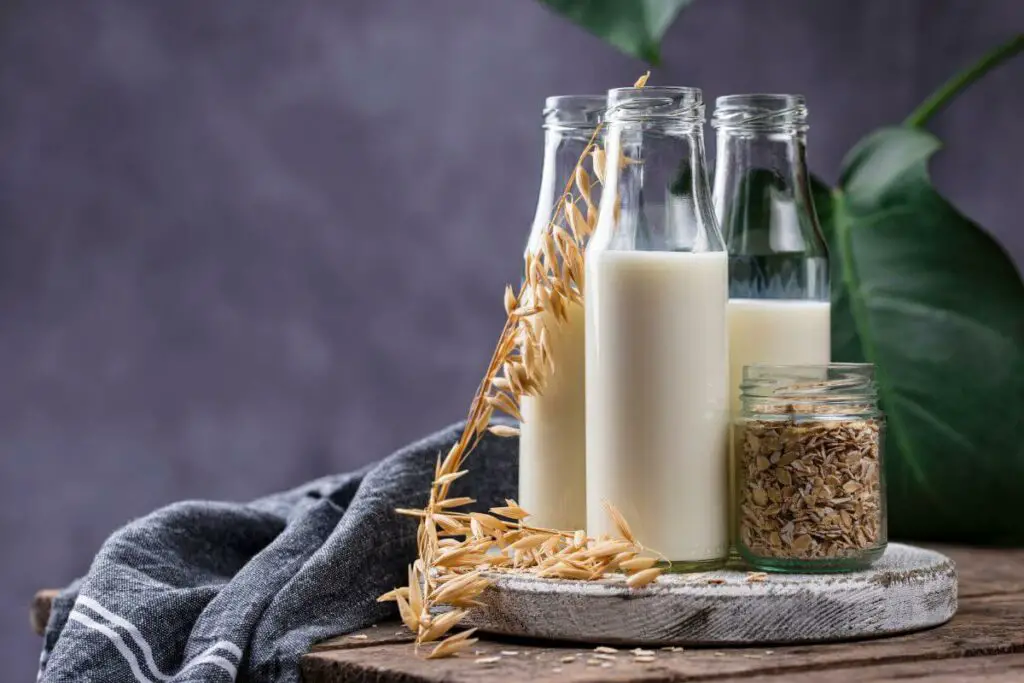Are you a part of the 1 in 5 Americans who suffer from Irritable Bowel Syndrome (IBS)? Or perhaps you’ve noticed a growing trend in lactose intolerance among your friends and family. If so, you’re not alone because about 65% of the global population has some form of lactose intolerance
This article will explore the complex relationship between dairy products, IBS, and lactose intolerance, providing you with valuable insights for your gut health journey.
As we navigate through the intricate terrain of digestive health, we’ll not only clarify the differences between lactose intolerance and IBS but also uncover how they can coexist and how dairy allergies come into play. By understanding these conditions, you’ll be better equipped to make informed decisions about your diet and lifestyle.
So, whether you’re a die-hard cheese lover or someone who’s always had a complicated relationship with dairy, this article will shed light on the nuances of dairy sensitivity in the context of IBS.
By the time you’re done reading, you’ll have a clearer picture of how you can effectively manage dairy and digestive disorders to improve your quality of life.
- Related: IBS Diet Guide

IBS Relationship with Dairy and Lactose Intolerance: Key Takeaways
- Dairy and IBS: Many individuals with IBS also have dairy sensitivity, with lactose and high-fat content in dairy products being common triggers for gut discomfort.
- Lactose Intolerance vs. IBS: It’s important to distinguish between lactose intolerance, IBS, and dairy allergies, as the management approach for each condition varies.
- Dairy Allergies and Gut Health: Dairy allergies are immune responses, while lactose intolerance and IBS are digestive issues, each requiring specific management strategies.
- Diagnosing IBS and Lactose Intolerance: Accurate diagnosis by a healthcare professional is essential to rule out other potential causes and create an effective treatment plan.
- Managing IBS and Dairy Sensitivity: Diet and Lifestyle Adjustments: Strategies like opting for lactose-free or dairy alternatives, following a low-FODMAP diet, and managing stress can help alleviate symptoms.
- Medical and Alternative Treatments: From prescription medications to dietary modifications and mind-body therapies, a personalized approach is key to managing IBS and lactose intolerance.
- When to Consult a Gastroenterologist: Recognizing Red Flags: Persistent and severe gastrointestinal symptoms, unexplained weight loss, and family history of gastrointestinal conditions are red flags that warrant a visit to a gastroenterologist. Regular check-ups are also important for long-term gut health.
Exploring the Link Between Dairy Consumption and IBS Symptoms

IBS is a chronic condition affecting the digestive system that can cause abdominal pain, bloating, and changes in bowel habits. It’s like your gut is throwing a temper tantrum, and dairy might just be the trigger it’s not so fond of.
Among its various triggers, dairy is a pervasive culprit often under scrutiny for its impact on IBS symptoms. Here’s why:
Lactose: Lactose, a natural sugar found in milk and dairy products, is a common irritant for those with IBS. When your body doesn’t produce enough of the lactase enzyme, responsible for breaking down lactose, it can lead to digestive distress.
Other dairy components: In addition to lactose, the fat content in dairy can also be problematic for some individuals with IBS. Higher fat intake can lead to delayed gastric emptying and worsen symptoms like diarrhea and cramping in IBS sufferers.
Lactose malabsorption: Even if you don’t have a true lactose intolerance, you might experience lactose malabsorption. This means that your body doesn’t fully absorb the lactose, leading to the classic symptoms of intolerance due to the fermentation of lactose in the gastrointestinal tract.
As researchers dig further into the nuances of IBS and its relationship with dietary choices, it’s increasingly clear that lactose and possibly other dairy components can trigger symptoms in those with IBS.
If you suspect that dairy might be a trigger for your IBS, conducting an elimination diet or exploring lactose-free dairy options could help identify common trigger foods to manage the severity of symptoms.
Always consult with a healthcare provider before making drastic dietary changes, as they can provide helpful recommendations based on your individual needs and health status. Going on a lactose-free diet or dairy-free diet can help, but it can be difficult to also avoid dairy foods completely.
Lactose Intolerance vs. IBS: Understanding the Differences

If your stomach flares up after a dairy indulgence but also in response to stress, you might wonder if it’s lactose intolerance or IBS causing the chaos. Here’s the scoop:
Lactose Intolerance:
- Symptoms: Gas, bloating, diarrhea, and stomach cramps after consuming dairy products.
- Causes: Inadequate production of the enzyme lactase, which is needed to break down lactose.
- Medical Diagnosis: Lactose intolerance is typically diagnosed through a hydrogen breath test or a lactose tolerance test.
IBS:
- Symptoms: Abdominal pain, bloating, and changes in bowel habits, often triggered by stress or certain foods.
- Causes: The exact cause of IBS is unknown but is thought to involve a combination of abnormal gastrointestinal motility, increased sensitivity to pain, and changes in gut bacteria.
- Medical Diagnosis: IBS is diagnosed based on symptoms and the exclusion of other conditions through medical history, physical examination, and sometimes additional tests.
Both Lactose Intolerance and IBS:
- Symptoms: Both conditions can cause similar symptoms, such as bloating and diarrhea.
- Coexistence: It’s possible for an individual to have both lactose intolerance and IBS, which can make it challenging to identify the specific trigger for symptoms.
- Implications: Understanding the differences between lactose intolerance and IBS is crucial for proper management. While lactose intolerance is primarily a dietary issue, IBS often requires a more comprehensive approach that may include stress management and dietary modifications beyond just avoiding lactose.
This distinction is critical. Imagine chowing down on a cheesy pizza only to realize your stomach can’t handle it. But if you avoid dairy foods, yet your gut still goes haywire, there could be more to the story. Knowing the differences between lactose intolerance and IBS helps you make targeted dietary and lifestyle changes for better gut health.
In a Nutshell: Lactose intolerance hinges on an enzyme deficiency that triggers digestive distress after consuming dairy, while IBS involves a broader digestive disorder often ignited by stress or specific foods. They’re unique conditions, yet they can blend like a palate of flavors in your favorite dish.
If you suspect you have either condition, consulting a healthcare professional for accurate diagnosis and personalized guidance is key to your digestive health.
The Role of Dairy Allergies in Gastrointestinal Health

Dairy Allergy Defined:
So, you’ve got a thing with dairy. It’s not your everyday lactose intolerance but a full-blown dairy allergy. That’s how the cow’s cheese crumbles for some folks. Dairy allergy is an immune response to milk proteins, typically affecting kids more than adults.
Allergies vs. Intolerance vs. IBS:
- Lactose intolerance – Your body can’t handle the sugar in milk.
- Dairy allergy – Your immune system flips out at the proteins in milk.
- IBS – A chronic condition affecting the large intestine, often triggered by certain foods, but without a clear allergy or intolerance pattern.
Gastrointestinal Nightmares:
Dairy allergies aren’t just confined to throat swelling and hives; they can cause significant gastrointestinal distress. Think cramps, diarrhea, and even bloody stools. If you regularly experience gastrointestinal turmoil post-dairy, it’s time for a heart-to-heart with your gastroenterologist.
Managing Dairy Allergies:
Why is it crucial to distinguish between a dairy allergy and lactose intolerance or IBS? Proper management is the key.
If you’re allergic to dairy, you need to avoid all sources of dairy and have an emergency plan in place in case of accidental exposure.
On the other hand, if you’re lactose intolerant, you can often manage symptoms by controlling your dairy intake or using lactase supplements.
From the broad world of health sciences, it’s clear that recognizing the nuances among dairy allergies, intolerance, and IBS can pave the way for more tailored management and improved quality of life.
So listen to your body, cut out the scientific jargon, and find what dairy relationship works best for you. It’s all about making informed choices that keep your gut happy and healthy.
Diagnosing IBS and Lactose Intolerance: A Step-by-Step Guide

When you’re grappling with chronic digestive issues, it’s crucial to get an accurate diagnosis. Self-diagnosing lactose intolerance or IBS based on symptoms alone can lead to unnecessary dietary restrictions or missed opportunities for proper treatment.
Here’s a step-by-step guide to how these conditions are typically diagnosed:
- Medical Diagnosis: Your first call should be a healthcare professional, ideally a gastroenterologist, who can evaluate your symptoms and medical history. They might recommend specific tests to confirm or rule out lactose intolerance or IBS.
- Stool Tests: Stool tests can help identify any signs of inflammation, infection, or digestive enzyme deficiencies that might be causing your symptoms. These tests can also rule out other conditions that can mimic IBS, such as inflammatory bowel disease (IBD).
- Hydrogen Breath Test: For suspected lactose intolerance, a hydrogen breath test is often used. This non-invasive test measures the amount of hydrogen in your breath after consuming a lactose solution. Elevated levels of hydrogen can indicate lactose malabsorption.
- Gastroenterology’s Role: Gastroenterologists are specialists in diagnosing and treating conditions of the digestive system. They can perform more in-depth tests, such as endoscopies or colonoscopies, to rule out other gastrointestinal disorders.
Remember, these tests aren’t about proving a condition exists, but rather, ruling out other potential causes of your symptoms. This process is key to getting the right diagnosis and the most effective treatment plan for you.
So if you’ve been grappling with persistent gut issues, don’t hesitate to reach out to a healthcare professional. Your gut will thank you later.
Managing IBS and Dairy Sensitivity: Diet and Lifestyle Adjustments

When it comes to managing IBS and dairy sensitivity, your diet can be a game-changer. Here’s how to make your meals IBS-friendly and still delicious:
- Opt for Lactose-Free or Dairy Alternatives
- Lactose-free dairy products: These are real dairy products with the lactose already broken down.
- Milk substitutes: Almond milk, soy milk, and oat milk are great dairy milk alternatives.
- Embrace the Low-FODMAP Diet
- This diet limits foods high in fermentable carbs, which can trigger IBS symptoms.
- Low-FODMAP dairy substitutes: Lactose-free milk, hard cheeses, and lactose-free yogurt.
- Mind Your Nutrition
- Ensure you’re getting enough nutrients from non-dairy sources like leafy greens, nuts, and seeds.
- Consult a dietitian to ensure you’re not missing out on essential nutrients.
- Consider Fiber Supplements
- Soluble fiber supplements can help regulate your bowel movements and ease symptoms.
- Whether from natural sources like oats and flaxseeds or through fiber supplements prescribed by your doctor or dietitian, fiber can promote regular bowel movements and improve overall gut health.
- Start with small doses and gradually increase to avoid bloating.
- Manage Stress and Anxiety
- Practice stress-reducing techniques like yoga, meditation, or deep breathing.
- Regular exercise can also help manage stress and improve gut health.
- Prioritize Good Gut Health
- Probiotics and prebiotics can support a healthy gut microbiome.
- Fermented foods like kimchi and kefir are natural sources of probiotics.
Remember, what works for one person may not work for another, so it’s important to experiment and find what suits your body best. And don’t forget, lifestyle factors like stress and anxiety can play a significant role in IBS symptoms, so finding ways to manage these can also make a big difference.
Adopting stress-reducing lifestyle tips such as mindful meditation, yoga, or even just taking that daily walk in the park can pay dividends for your gut health.
Medical and Alternative Treatments for IBS and Lactose Intolerance

When it comes to managing IBS and Lactose Intolerance, there’s a diverse array of medical and alternative treatments to consider. Let’s dive into the options:
Medical Treatments:
- Rifaximin: This antibiotic has shown efficacy in treating IBS symptoms, particularly for those with diarrhea-predominant IBS.
- Alosetron: A prescription medication, Alosetron, is used to help manage severe diarrhea in women with IBS.
- Lactase Supplements: For lactose intolerance, lactase supplements can be taken to aid in the digestion of lactose.
Alternative Treatments:
- Dietary Modifications: Cutting out high-lactose foods or following a low-FODMAP diet can significantly reduce symptoms of both conditions.
- Probiotics: Some studies suggest that certain probiotic strains can help alleviate IBS symptoms.
- Mind-Body Therapies: Techniques like cognitive behavioral therapy and gut-directed hypnotherapy have been shown to help manage IBS symptoms.
It’s important to note that while these alternative treatments can be beneficial, they should be used in conjunction with guidance from healthcare professionals.
It’s is crucial to ensure that the treatment plan aligns with your specific needs and doesn’t interfere with any existing medical conditions or medications.
In the realm of clinical medicine and health care, it’s not about choosing one path over another, but rather finding a personalized approach that works best for you.
Whether it’s a prescription medication like Rifaximin, or a more natural route with lactase supplements and dietary changes, the goal is to find relief and improve your quality of life.
When to Consult a Gastroenterologist: Recognizing Red Flags

If you’re experiencing persistent and severe gastrointestinal symptoms, it’s time to consult a gastroenterologist.
Signs and symptoms that should prompt a visit include:
- Unexplained weight loss
- Severe or persistent abdominal pain
- Blood in your stool
- Family history of gastrointestinal conditions
Regular check-ups with a gastroenterologist are crucial, especially if you have chronic symptoms like diarrhea, constipation, bloating, or gas. Early detection and management of gastrointestinal tract disorders can prevent complications such as colorectal cancer, which is particularly important if you have a family history of the disease.
During your visit, your gastroenterologist may recommend tests like a colonoscopy to assess the health of your colon and rectum. Don’t be nervous; this procedure is a key tool in early detection of colorectal cancer and other gastrointestinal conditions.
Remember, your gut health is just as important as any other aspect of your well-being. So if your gut is giving you consistent trouble, don’t hesitate to reach out to a specialist. It’s all about ensuring your digestive system is in top form, so you can enjoy all the cheesy delights life has to offer.

Understanding the intricate relationship between dairy, lactose intolerance, and IBS can be a game-changer in managing your gut health. From identifying your triggers to seeking personalized medical guidance, you have a range of tools at your disposal to create a lifestyle that keeps your gut happy and comfortable.
Remember, you’re not alone in this journey. With the right strategies, such as opting for lactose-free alternatives, following a low-FODMAP diet, and managing stress, you can significantly alleviate your symptoms. By consulting with healthcare professionals, including gastroenterologists and dietitians, you can create a tailored plan that works best for you.
So, whether you’re enjoying a lactose-free latte or exploring the world of gut-friendly probiotics, the key is to take charge of your gut health. By being proactive and informed, you can find a balance that allows you to savor life’s cheesy delights without the discomfort.
Your gut health is an essential part of your overall well-being, and with the right approach, you can live well, even with dairy sensitivity and IBS.
Learn more about diet and food for IBS sufferers:

